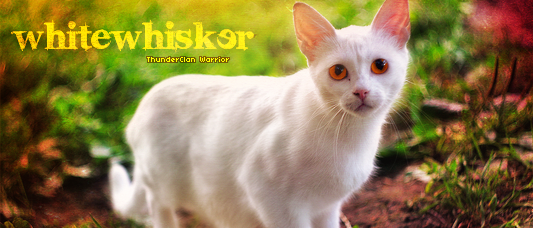Post by Aqua on Jan 6, 2014 19:14:18 GMT -6
Land/Forest-dwelling Herbs
Alder bark – eases toothaches
Beech leaves – used for carrying other herbs
Bindweed – helps in binding sticks to broken legs to create a splint
Blackberry leaves – ease the swelling from bee stings
Borage leaves – eaten by Queens to produce milk. Also cures fevers.
Burdock root – lessens and heals the pain of infected rat bites
Burnet – traveling herb, also used to stop bleeding
Catchweed – the burrs are applied to a pelt to prevent poultices from moving
Catmint – cure for greencough
Celandine – the juice is used to soothe damaged eyes
Chamomile – Traveling herb
Chervil – used in infected wounds and also eaten to soothe bellyaches. Can also be used during kitting.
Chickweed – treats greencough, but not as well as catmint.
Cobwebs – used to stop bleeding, also used to bind broken bones
Coltsfoot – Eases kitten-cough, as well as cracked or sore pawpads
Comfrey root – Repairs broken bones or soothes wounds. Also can be used for wrenched claws or stiff joints.
Daisy leaf – Eases aching joints, also a traveling herb
Dandelion – soothes bee stings, also the leaves can be used as a painkiller
Dock – soothes scrathes and sore pads. Stings when applied
Fennel – helps hip pain during kitting
Feverfew – reduces body temperature during fevers or chills, also good for curing pain—especially headaches.
Goldenrod – heals wounds
Heather nectar – makes herb concoctions easier to swallow, as it is sweet.
Honey – soothes infections, sore throats, and coughing. Can also be used to make herb concoctions easier to swallow.
Horsetail – treats infections and stops bleeding
Ivy leaf – used for carrying and storing herbs
Juniper berries – soothes bellyaches and troubled breathing, also calms and gives strength (traveling herb)
Lamb’s ear – traveling herb
Lavender – cures fever and chills, also used for burials
Mallow leaves – soothes bellyache
Marigold – stops infection, bleeding, and inflammation
Mint – hides the scent of death
Mouse bile – used to remove ticks
Oak leaf – stops infection
Parsley – stops a Queen from producing milk, also used to cure bellyache
Poppy seeds – used to help a cat sleep, also can be used to soothe pain, shock or distress. Do not give to nursing Queens.
Ragwort leaves – treats aching joints, is also a traveling herb
Ragweed – traveling herb
Raspberry leaves- eases pain and stops bleeding
Rosemary – used for burials, hides scent of death
Rush – holds a broken limb in place
Snakeroot – heals poison
Sorrel – traveling herb
Sticks – given to Queens to chew on during kitting, can also be used to create splints
Stinging nettle – induces vomiting, reducing swelling, and can also be used to cure broken bones.
Sweet-Sedge – eases infection
Tansy – cures and soothes coughs, wounds, and poisoning. Also used as a preventative herb for greencough
Tormentil – the root is used to treat wounds and extract poison
Thyme – calms nervousness, anxiety, and shock
Watermint – eases suffering from a bellyache
Wild garlic – prevents infection
Willow – Willow bark is used to ease pain, while its leaves can be used to stop vomiting
Wintergreen – used to treat poison
Yarrow – extracts poison, also makes a cat vomit. The ointment can be used to soothe and heal cracked pads
Sea-dwelling Herbs
Codium – eases bellyaches
Hydroclathrus – for pregnant Queens
Sea grapes – traveling herb for strength, also soothes aching joints
Sea lettuce – applied to wounds as a dressing
Sea oak – can be used as a poultice dressing for wounds, also can be used for drawing out poison
Spiny seaweed – applied to prevent bleeding
Tubular seaweed – traveling herb
Thorn grass – eases bellyaches


























